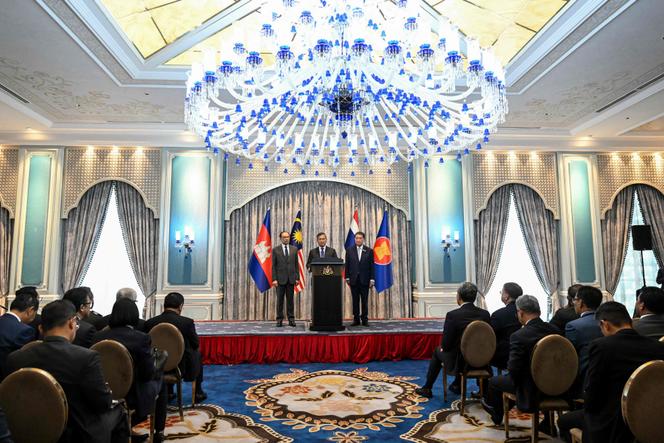


Thailand and Cambodia's leaders agreed to an "unconditional" ceasefire on Monday, July 28, after five days of fighting along their jungle-clad frontier, with the conflicts having killed at least 36 people and forced tens of thousands to flee. The flare-up over a long-disputed border area was the deadliest since 2008-2011, a period when violence raged throughout the territory, which is claimed by both sides because of a vague demarcation established by Cambodia's French colonial administrators in 1907.
The two countries agreed "an immediate and unconditional ceasefire with effect from 24 hours local time, midnight on 28th July 2025, tonight," Malaysia's Prime Minister Anwar Ibrahim said. The announcement follows a mediation meeting at Anwar's official residence in Malaysia, which currently chairs the Association of Southeast Asian Nations. Thailand's acting Prime Minister Phumtham Wechayachai and Cambodia's Prime Minister Hun Manet met shortly after 0700 GMT, with Anwar present.
"This is a vital first step," Anwar told reporters, adding both leaders have "expressed their positions and willingness to (...) an immediate ceasefire, a return to de-escalation and the restoration of peace and security."
Both Putham and Hun thanked US President Donald Trump for supporting the talks.
Hun added "the solutions that Prime Minister Anwar just announced will set a condition for moving forward for our bilateral discussion to return to normalcy of the relationship."
At least 36 people have been killed and more than 200,000 displaced as the countries, both popular tourist destinations, fought over a smattering of contested border temples.
